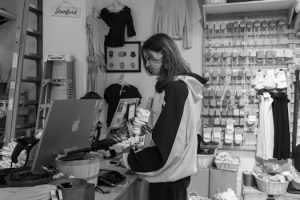Ethical Sourcing: Why Conflict Minerals Are Fashion’s New Focus
As consumers become increasingly aware of the impact their purchases have on the world, ethical sourcing has become a hot topic in the fashion industry. From fair labor practices to sustainable materials, consumers are more interested in the ethical side of fashion rather than just the latest trends. One area of ethical sourcing that is gaining more attention is conflict minerals. These materials, often used in the production of jewelry and electronics, are fueling violence and exploitation in regions of the world. In this article, we’ll explore why conflict minerals are fashion’s new focus and why it’s important for companies to address this issue.
The Issue of Conflict Minerals
Conflict minerals are minerals that are extracted from areas of the world that are experiencing ongoing conflict. These minerals include gold, tin, tungsten, and tantalum, and are often used in the production of electronic devices and jewelry. The regions where these minerals are found, such as the Democratic Republic of Congo, are known for their armed conflicts and human rights abuses. Unfortunately, these minerals are often controlled by armed groups, who use the profits from their sale to fund their activities, leading to violence and exploitation.
The Impact on the Fashion Industry
While conflict minerals have been a concern for many industries, the fashion industry is now facing pressure to address this issue. This is due in part to increased consumer demand for ethically sourced products. Many consumers are now educating themselves on the source of the materials used to make their clothing and accessories, and are choosing to shop with companies that prioritize ethical sourcing.
Ethical Supply Chain
The production of fashion items involves a complex global supply chain, making it difficult to trace the origin of all the materials used. However, companies can take steps to ensure that their supply chain is ethical and free from conflict minerals. This includes conducting thorough audits of their suppliers and implementing policies that prohibit the use of conflict minerals.
Transparency and Accountability
In addition to ensuring ethical sourcing, companies also need to be transparent and accountable about their efforts. This means disclosing where their materials come from and the steps they are taking to prevent the use of conflict minerals. It also involves working with suppliers to improve working conditions and ensure fair wages for workers in the supply chain.
The Role of Consumers
Consumers have the power to drive change in the fashion industry. By choosing to purchase from companies that prioritize ethical sourcing and transparency, consumers can send a message to companies that they value these principles. By supporting ethical brands and asking questions about the source of materials, consumers can also hold companies accountable and push for change.
Education and Awareness
As consumers become more aware of the issue of conflict minerals, it’s important for companies to educate their customers on their efforts to address this issue. This can be done through social media, blog posts, and other marketing materials. By educating consumers on the impact of their purchases, companies can foster a stronger connection with their customers and build trust in their brand.
Demand for Change
Finally, as consumers become more aware of the issue of conflict minerals, they are also becoming more vocal about their desire for change. This has led to the development of organizations and initiatives that focus on supporting ethical sourcing in the fashion industry. By supporting these initiatives and demanding change, consumers are playing a crucial role in driving positive change in the fashion industry.
Conclusion
In conclusion, conflict minerals are gaining more attention in the fashion industry as consumers demand ethically sourced products. Companies must take steps to ensure that their supply chain is free from conflict minerals and be transparent and accountable about their efforts. By educating and engaging consumers, companies can work towards a more ethical and sustainable supply chain. As consumers continue to drive change, the fashion industry must prioritize ethical sourcing to not only meet consumer demands but also do their part in creating positive change in the world.










